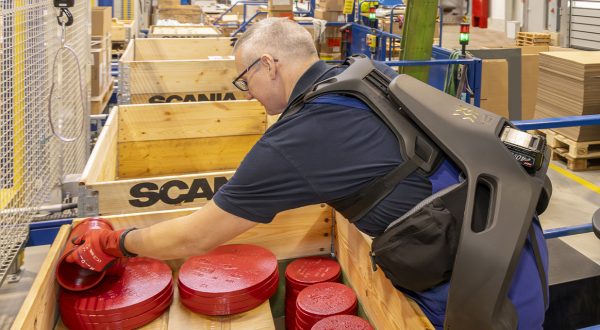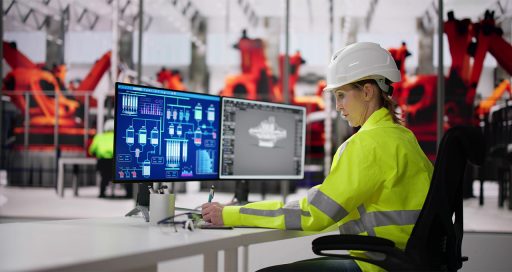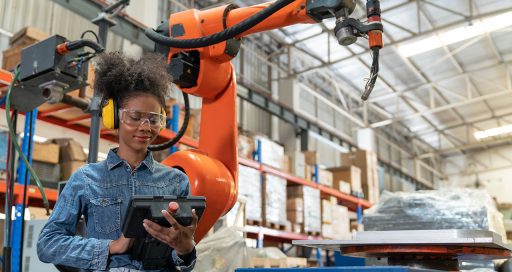Big data and artificial intelligence skills are in high demand to operate increasingly high-tech Industry 4.0 production facilities.
![]()
Will AI save industry? The Boston Consulting Group’s international AI in the Factory of the Future study found that 29 % of respondents see artificial intelligence, which can potentially reduce production costs by 20 %, as the leading productivity driver. As a result, 87 % of factory managers said they planned to install AI solutions in their factories within the next three years.
This revolution raises the crucial issue of who is to manage these machines running on algorithms. Employees must be trained to control and process the big data that fuels AI. The problem is that it takes employees a long time to acquire these skills, while artificial intelligence is progressing at breakneck speed. The alternative is to recruit data scientists. But such experts are in high demand across all economic sectors, and attracting them into an industrial sector that can hardly be said to have an up-to-date image and paying them high salaries in order to overcome the talent shortage is challenging.
“Factories have not yet experienced the digital revolution that is now taking place all around us”
However, industrial companies may have some time to prepare. Bruno Nicolas, Director of the Actemium brand (VINCI Energies), believes that despite headlines about its exponential growth, artificial intelligence is in fact only gradually being introduced at industrial sites. “Given the cost of these investments and the need to safeguard the quality of the finished product, digitalisation 4.0 remains narrowly targeted at specific types of equipment where the potential gains are highest. For example, wireless sensors, a data processing system, and a touch screen can be added to an existing automated line to give the operator-technician additional decision-making support. Factories have already been through the automation revolution but have not yet experienced the digital revolution that is now taking place all around us.”
As a result of this change in the human-machine interface, operators now serve as technicians and must continuously acquire new skills and even new reflexes. Designer-integrators also need to acquire new qualifications in cobot training, vision systems, predictive maintenance statistics, cyber-testing, and further specialist skills that cannot yet be predicted.
Requalification
“Factory automation entails job requalification,” says Valeo Compensation, Benefits and Training Director, Patrick Benammar. The good news is that the disruption is reducing the number of tedious and arduous jobs and replacing them with PLCs and skilled jobs.
“But AI does not necessarily replace the operator. Quite often, it provides the operator with valuable support,” says Olivier Genelot, Director of the Axians brand (VINCI Energies). “For example, we set up an AI solution at an industrial site that increases production volume by 10 % by eliminating bottlenecks. Data is collected from all machines and the AI system provides each operator with real-time information. They are thus able to manage their production cells in such a way as to optimise the operation of the factory as a whole
If the interface is well designed, the AI solution is a fairly natural extension of the operator’s work and will not require requalification. It is therefore up to integrators to design appropriate AI solutions based on the user’s needs and working environment. This means that integrators need to have much broader knowledge than algorithms.
However, the algorithms that are used do require special expertise.
To attract artificial intelligence experts, VINCI Energies offers them challenging assignments and an international work environment. “We provide the geek atmosphere they love,” says Olivier Genelot, who says that admittedly there is also compensation pressure in these sought-after jobs.
13/12/2018




